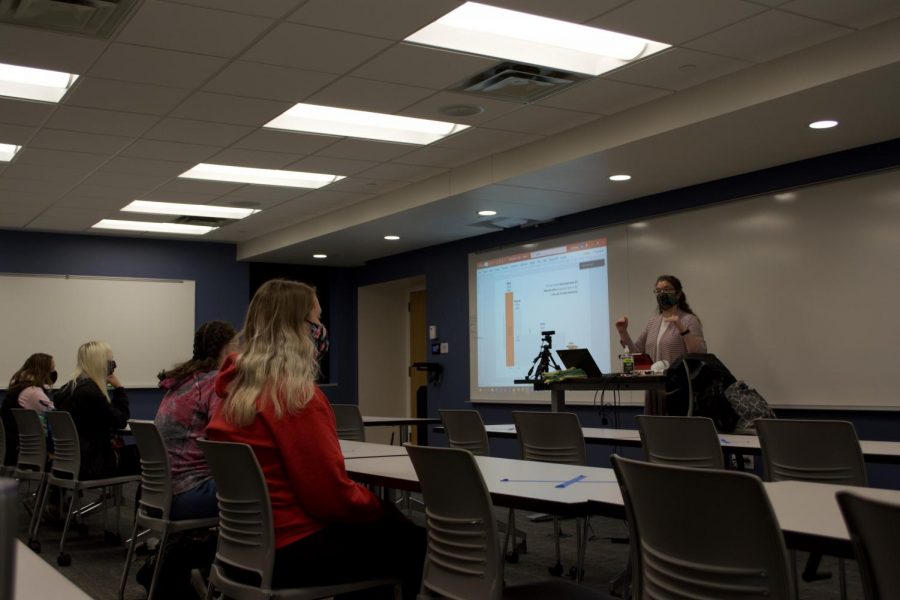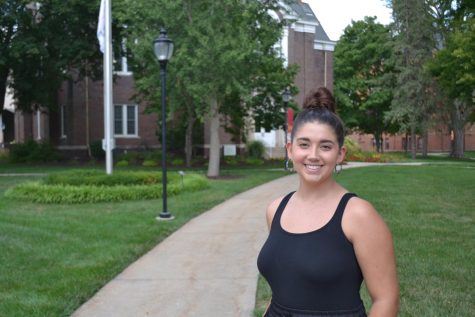Nationwide virtual Scholar Strike reaches Simpson
Professor Meyers shows statistics on the “rate at which Black Americans are killed by police.”
September 16, 2020
Many Simpson professors engaged in the #ScholarStrike, inspired by Colin Kaepernick, last Tuesday and Wednesday as a way to educate students on various topics related to systemic racism, policing, mass incarceration and other signs of racism’s damage to America.
Last week, Simpson professors participated in a nationwide Scholar Strike, where educators took action in the form of a teach-in. For two days, faculty, staff and administrators on college campuses are encouraged to pause on their standard teaching criteria to advocate for racial justice. Several professors took on multiple different topics centered around racial injustice in ways that connected back to the subject of their classes.
Adrienne Gathman, a political science professor, focused on campaigns and elections and felon disenfranchisement in her American political parties class.
“American political parties started talking about campaigns and elections and focusing on the political science research that is done in that area,” Gathman said. “Actual experiments and the findings of those when it comes to Black candidates versus white candidates.”
Gathman then talked about felon disenfranchisement in her class.
“Then we moved into felon disenfranchisement and how that disproportionately impacts the Black population, to the point that in states like Florida over 25 percent of the Black population cannot vote because of felon disenfranchisement,” Gathman said.
Gathman said she chose to participate and focus on these topics because she thinks it is important for people to understand different areas.
Aswati Subramanian, assistant professor of biology, also took part in the Scholar Strike. She had first heard about the Scholar Strike from some of the professors in the Diversity and Inclusivity Committees.
“I started off with common topics just to introduce students to questions and have them answer questions that may have been awkward in terms of answering, but just because a conversation is difficult doesn’t mean we should not have it,” Subramanian said. “In fact, because a conversation is difficult, we have to have it.”
Subramanian then used Kahoot in her classes to do a privilege walk, in which she asked them at least 30 questions to discuss the concept of privilege and what it actually means.
“What [the privilege walk] allowed them to see is that there is a lot of diversity in the classroom, just because we don’t see it doesn’t mean it doesn’t exist,” Subramanian said.
Subramanian also connected this discussion to Black Lives Matter and why using the term “Black Lives Matter” is so important in comparison to the term “All Lives Matter.”
Subramanian hopes her students will gain an openness and that they’ll feel motivated to contribute to conversations about inequality.
“It shouldn’t just be acceptance,” Subramanian said. “It should be thriving. If we have to thrive and evolve as a society, the most beautiful way to do it is to see the beauty in diversity, so these conversations are very important.”
Subramanian will be having continued conversations with her classes in the form of discussion forums.







